
Richard Georg Strauss was a German composer and conductor best known for his tone poems and operas. Considered a leading composer of the late Romantic and early modern eras, he has been described as a successor of Richard Wagner and Franz Liszt. Along with Gustav Mahler, he represents the late flowering of German Romanticism, in which pioneering subtleties of orchestration are combined with an advanced harmonic style.

Franz Lehár was an Austro-Hungarian composer. He is mainly known for his operettas, of which the most successful and best known is The Merry Widow.

Louis Spohr, baptized Ludewig Spohr, later often in the modern German form of the name Ludwig was a German composer, violinist and conductor.

L'oca del Cairo is an incomplete Italian opera buffa in three acts, begun by Wolfgang Amadeus Mozart in July 1783 but abandoned in October. The complete libretto by Giambattista Varesco remains. Mozart composed seven of the ten numbers of the first act, plus some recitative, as well a sketch for a further aria; the extant music amounts to about 45 minutes.

Franz Schreker was an Austrian composer, conductor, librettist, teacher and administrator. Primarily a composer of operas, Schreker developed a style characterized by aesthetic plurality, timbral experimentation, strategies of extended tonality and conception of total music theatre into the narrative of 20th-century music.
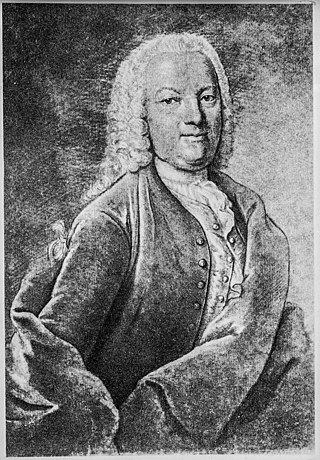
Johann Georg Pisendel was a German Baroque violinist and composer who, for many years, led the Court Orchestra in Dresden as concertmaster, then the finest instrumental ensemble in Europe. He was the leading violinist of his time, and composers such as Tomaso Albinoni, Georg Philipp Telemann and Antonio Vivaldi all dedicated violin compositions to him.
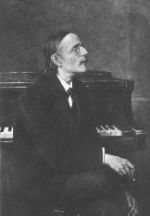
Carl August Peter Cornelius was a German composer, writer about music, poet and translator.

Peter Winter, later Peter von Winter, was a German violinist, conductor and composer, especially of operas. He began his career as a player at the Mannheim court, and advanced to conductor. When the court moved to Munich, he followed and later became kapellmeister of the opera there. His opera Das Labyrinth, a sequel to Mozart's Die Zauberflöte, was premiered in Vienna in 1798, and his Maometto at La Scala in Milan in 1817. His work has been regarded as a bridge between Mozart and Weber in the development of German opera.

Leopold Fall was an Austrian Kapellmeister and composer of operettas.

Georg Anton Benda was a composer, violinist and Kapellmeister of the classical period from the Kingdom of Bohemia.

Ignatz Waghalter was a Polish-German composer and conductor.
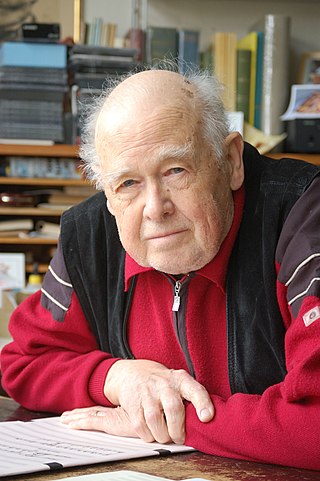
Giselher Wolfgang Klebe was a German composer, and an academic teacher. He composed more than 140 works, among them 14 operas, all based on literary works, eight symphonies, 15 solo concerts, chamber music, piano works, and sacred music.

Carl Gottfried Wilhelm Taubert was a German pianist, composer, and conductor, and the father of philologist and writer Emil Taubert.

George Pantazi, better known by his stage name Georges Boulanger, was a Romanian violinist, conductor and composer.

Franz Adolf Friedrich Schober, since 1801 von Schober, was an Austrian poet, librettist, lithographer, actor in Breslau and Legationsrat in Weimar.

Antonio Casimir Cartellieri was a Polish-Austrian composer, violinist, conductor, and voice teacher. His reputation dissipated after his death, not to be resurrected until the late 20th century. One son was the spa physician Paul Cartellieri. Another, Josef Cartellieri, compiled some largely second-hand biographical notes about the father he scarcely knew.
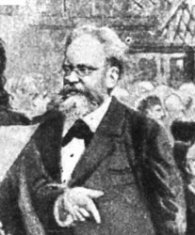
Heinrich Urban was a German violinist and composer.
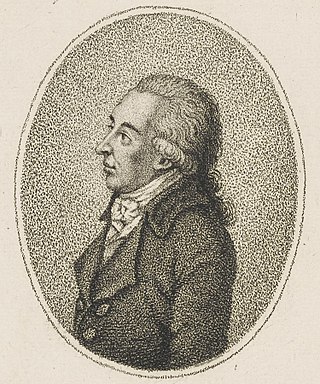
Friedrich Wilhelm Rust was a German violinist, pianist and composer. He hailed from a renowned musical family in Germany. He was the father of the pianist and organist Wilhelm Karl Rust and the grandfather of Thomaskantor, composer and Bach scholar Wilhelm Rust.
Hans Albert Oskar Stieber was a German conductor, composer and violinist. He was the founding director of the Hochschule für Theater und Musik in Halle an der Saale.

Rudolf Bial was a German violinist, composer, conductor and theater director.


















